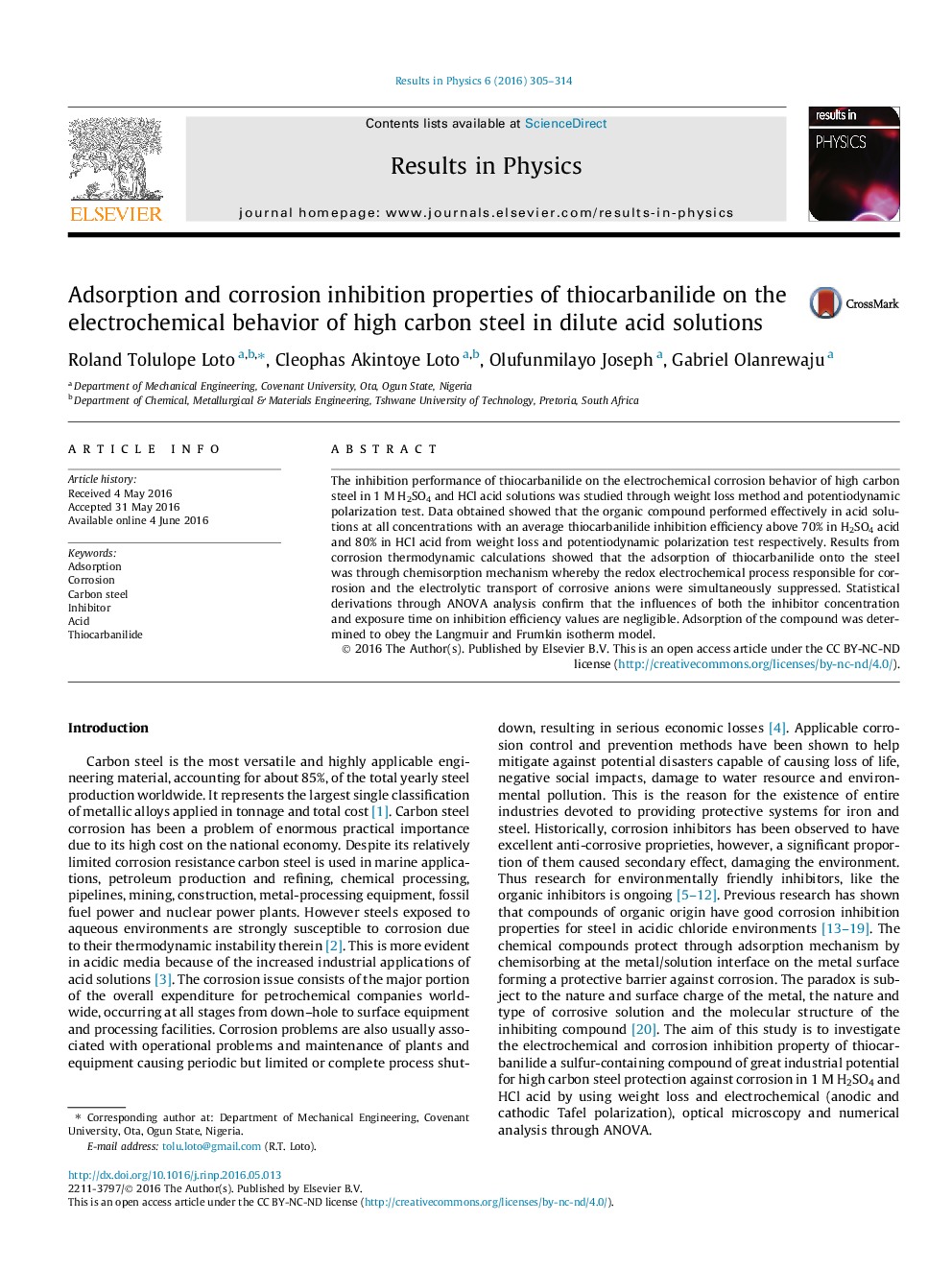| Article ID | Journal | Published Year | Pages | File Type |
|---|---|---|---|---|
| 1875490 | Results in Physics | 2016 | 10 Pages |
•Thiocarbanilide inhibited corrosion of high carbon steel in dilute acid media.•Potentiostatic parameters were studied with respect to thiocarbanilide compound.•Inhibition efficiency of thiocarbanilide was above 70% at all concentrations.•Thiocarbanilide adsorbed on the steel surface through chemisorption mechanism.•Thiocarbanilide influenced the mechanism of the redox corrosion process.
The inhibition performance of thiocarbanilide on the electrochemical corrosion behavior of high carbon steel in 1 M H2SO4 and HCl acid solutions was studied through weight loss method and potentiodynamic polarization test. Data obtained showed that the organic compound performed effectively in acid solutions at all concentrations with an average thiocarbanilide inhibition efficiency above 70% in H2SO4 acid and 80% in HCl acid from weight loss and potentiodynamic polarization test respectively. Results from corrosion thermodynamic calculations showed that the adsorption of thiocarbanilide onto the steel was through chemisorption mechanism whereby the redox electrochemical process responsible for corrosion and the electrolytic transport of corrosive anions were simultaneously suppressed. Statistical derivations through ANOVA analysis confirm that the influences of both the inhibitor concentration and exposure time on inhibition efficiency values are negligible. Adsorption of the compound was determined to obey the Langmuir and Frumkin isotherm model.
Graphical abstractFigure optionsDownload full-size imageDownload as PowerPoint slide
